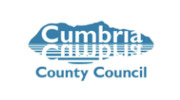What will I learn?
Our research-led course will give you plenty of practical experience. Our curriculum focuses on supporting you to put learning into practice and places you in school four days a week from early September until the end of June.
The programme balances excellent subject specific expertise with a deep understanding of effective teaching methods and includes an emphasis on teacher wellbeing.
Our programme also includes placements in other educational settings, later in the year to ensure that you qualify with broad teaching experience.
The programme will cover all areas of the ITT Core Content Framework providing an integrated understanding of common teaching practice and subject / phase methodology. You will be given opportunities to practise and apply your learning in the classroom.







